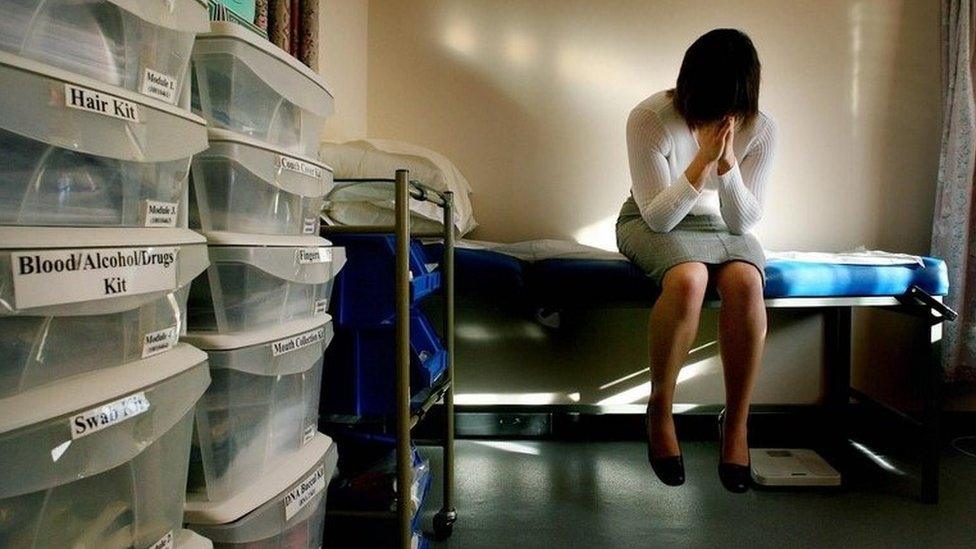New standards set for forensic testing of rape victims
- Published

The Scottish government said more female doctors were needed to examine rape victims
New forensic standards are to be introduced to improve examinations of victims of sexual violence.
They will ensure the way victims are treated - and evidence gathered - is the same across Scotland.
Ministers said it was important to ensure a consistent and sympathetic service to support victims.
The government has also launched a survey to find why few female doctors have been willing to be involved in forensic examinations.
It followed claims that some rape victims in the Northern Isles do not report it because they have to travel, without washing, to the mainland for forensic tests.
Healthcare Improvement Scotland (HIS) will produce the new standards to ensure best practice is applied when examining victims following a rape or sexual assault - including the conditions and way examinations are handled.
'Vulnerable and traumatised'
Justice Secretary Michael Matheson said it was important that victims of sexual violence felt confident coming forward, knowing they were going to be supported every step of the way, including forensic examination.
"While the way evidence is gathered and recorded is a top priority for the legal process, it must be balanced with the needs of victims, who may be vulnerable and traumatised," he said.

The government wants standards of forensic medical examinations to be the same throughout Scotland
Sara Twaddle, director of evidence for HIS, said: "It is vital that victims of rape or sexual assault receive the best care and support possible, that they have confidence in the service and that forensic examinations are carried out to the same high standard across the country."
The government said many sexual assault victims wanted to be examined by a female doctor - and more were needed.
'Vital role'
It has launched a survey to help ministers understand the barriers for woman getting involved in this area of medicine, with concerns doctors might not realise what is involved - or may be fearful the eventual court process would be time-consuming.
Dr Louise Scott, who carries out forensic examinations in Stornoway, urged more women to do the same.
She said: "When an individual has been brave enough to come forward after sexual assault, healthcare professionals have a vital role as part of that multi-agency response in meeting both the therapeutic needs of the victim and the high standard of evidential requirements.
"Many doctors and healthcare professionals may not realise they already have many of the professional skills required to provide a competent and caring response for victims of sexual assault and that, with the additional training and support available, they could be contributing to a high quality, co-ordinated, sensitive and victim-centred forensic medical response within their community.
"We need more female healthcare professionals prepared to take on this rewarding work, especially those from a GP, sexual health or gynaecology background, and help improve the experience and outcomes for victims."
'Huge difference'
Rape Crisis Scotland (RCS) said developing new standards should ensure that, no matter where someone lives in Scotland, they can access an appropriate and sensitive response.
RCS national co-ordinator, Sandy Brindley said: "The response someone receives following rape can vary greatly, depending where they live and when the offence took place.
"Forensic examinations conducted in an appropriate location, by a female doctor, with co-ordinated sexual health follow-up and emotional and practical support, could make a huge difference to rape survivors experiences."
The standards are expected to be rolled out before the end of 2017.
Minimum standards for the forensic examinations to victims of a sexual offence were set out in 2013, but they are not obligatory and health boards do not have to formally report on how they are applied.